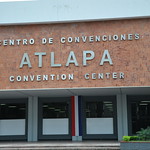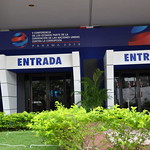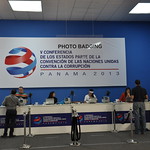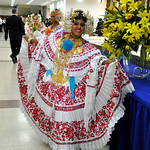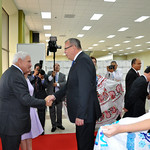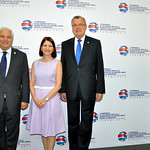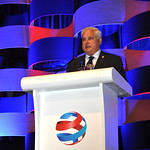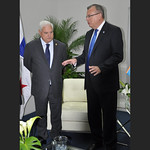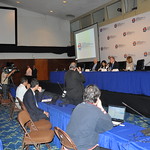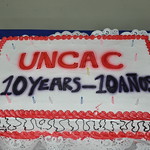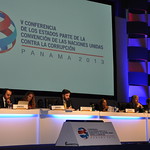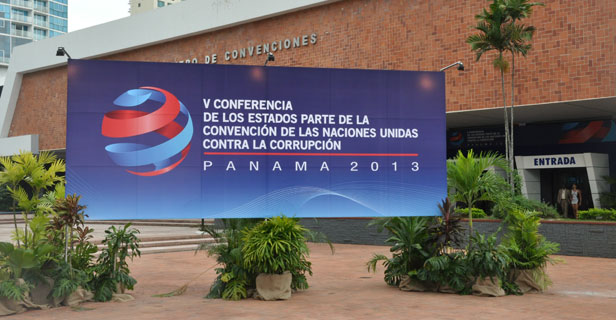
With an estimated US$20 to US$40 billion leaving developing countries every year due to acts of corruption, this crime threatens social and economic development across the globe. The price is paid in full by the millions of men, women and children who miss out on education, essential healthcare, proper sanitation and clean water.
The Conference of the States Parties (COSP) to the UNCAC is the world's biggest anti-corruption gathering and brings together more than 1,200 people from Member States, parliaments, inter-governmental organizations, civil society, the private sector and the media. The conference is the vital link between decision making at the international level and the practical anti-corruption activities delivering relief at the local level.
Anti-corruption: 'Just the facts ...'
Factsheets are available in English and Spanish on corruption and development (factsheet 1); an overview of the UN Convention against Corruption (Factsheet 2); safeguarding major public events against corruption (factsheet 3); Illegal sports betting and match-fixing (factsheet 4); corruption and the environment (factsheet 5) and corruption and small medium enterprises (factsheet 6).
The high hurdle of corruption: a barrier to development, an obstacle to progress
The United Nations Office on Drugs and Crime (UNODC) believes corruption is the single greatest obstacle to economic and social development around the world. Every year it is estimated by the World Bank that between US$20 to US$40 billion dollars are lost from developing countries due to corruption and bribery. But corruption does not just steal money from where it is needed the most; it leads to weak governance, which in turn fuels organized criminal networks and promotes crimes such as human trafficking, arms and migrant smuggling, counterfeiting and the trade in endangered species.
Factsheet 1 on corruption and development now available
Visions for a brighter future: ten years of the UN Convention against Corruption, ten years of global anti-corruption efforts
The United Nations Convention against Corruption was adopted in 2003 and has been ratified by 168 States, more than four fifths of the United Nations Member States. The legally-binding Convention obliges States to prevent and criminalize corruption; to promote international cooperation; to recover stolen assets; and to improve technical assistance and information exchange in both the private and public sectors.
Factsheet 2 giving an overview of the UN Convention against Corruption now available
Defending our global occasions: how to protect major public events from corruption
Major public events such as the Olympics and the FIFA World Cup involve complex logistical arrangements, years of planning and can span more than one nation. Success depends largely on the reputation and credibility of the organizer. But, the exceptional nature of these events increases the likelihood that regulations and procedures might be set aside or ignored. These problems are exacerbated by the shortness of time for the delivery of large scale infrastructure projects often leading to a lack of oversight and transparency in the allocation of public funds.
Factsheet 3 on corruption and major public events now available
Preventing the "fix", betting on fairplay and integrity in sporting endeavour
Billions of people across the world take part in amateur sporting activities or are captivated when professionals play these same sports. Whether it is professional football, tennis, American football or baseball, these games capture the essence of fair play, integrity and physical endeavour. However, sports are being undermined by the rise of illegal sports betting and match-fixing. These crimes have grown into a huge transnational business worth billions of dollars and have cast a dark shadow over the results of sporting events. Today, various sports bodies are looking into new ways of confronting this crime.
Factsheet 4 on illegal sports betting and match-fixing now available
Listen to an interview with Dimosthenis Chrysikos UNODC Crime Prevention and
Criminal Justice Officer talking about corruption in sport.
Disappearing forests: the role of corruption in blighting our environment
Corruption has a serious impact on the environment. Every two seconds an area of forest the size of a football field is cut down by illegal loggers around the globe. From the embezzlement of funds for environmental protection programmes to major corruption in the issuing of permits and licences for natural resource exploitation, corruption occurs at every level, often leaving environment safeguards ignored or bypassed.
Factsheet 5 on corruption and the environment now available
The company we want to keep: building a level playing field for the private sector
Corruption distorts markets and increases costs for companies, and ultimately for consumers. This crime remains a significant problem for tens of thousands of businesses globally, particularly small firms which often have little choice, but to use corrupt practices for market survival. However, the private sector can play a powerful role by rejecting corruption and embracing fair and transparent practices that create a level-playing field for everyone.
Factsheet 6 on corruption and small medium enterprises available now
Listen to the pre-conference press briefing
In a press briefing in Vienna before the conference, the Chief of UNODC's Corruption and Economic Crime Branch, Dimitri Vlassis explained the importance of the conference in fighting corruption and outlined some of the key issues to be discussed in Panama.
Listen to the briefing (MP3)
The Executive Director of the United Nations Office on Drugs and Crime Yury Fedotov spoke at the opening of the CoSP5 in Panama City. Read his speech here.
Mr. Fedotov also addressed the Closing Ceremony of the 7th Annual Conference and General Meeting of International Association of Anti-Corruption Authorities on Sunday 24 November. Read his speech here.

